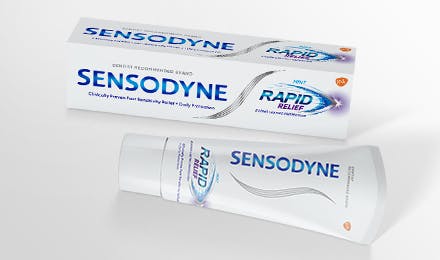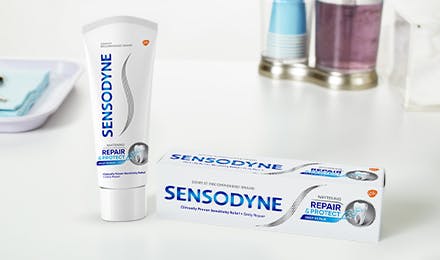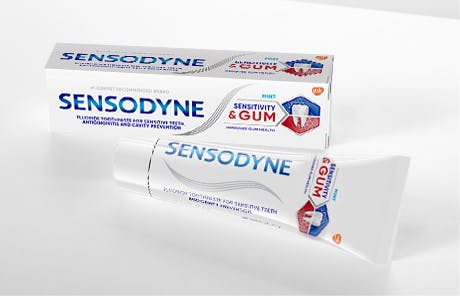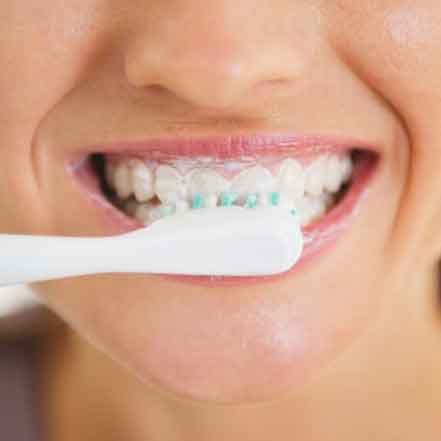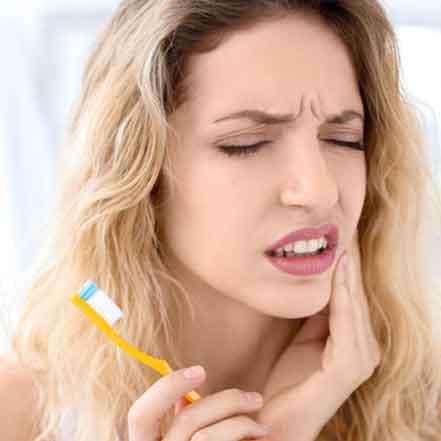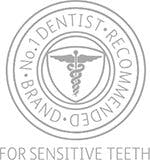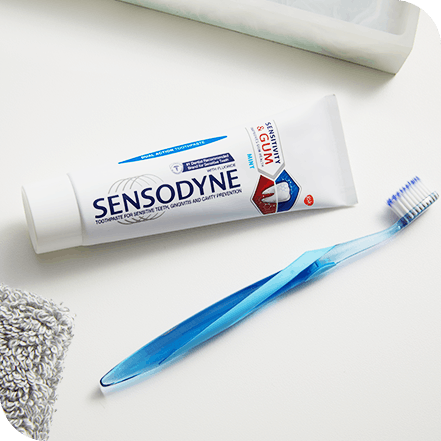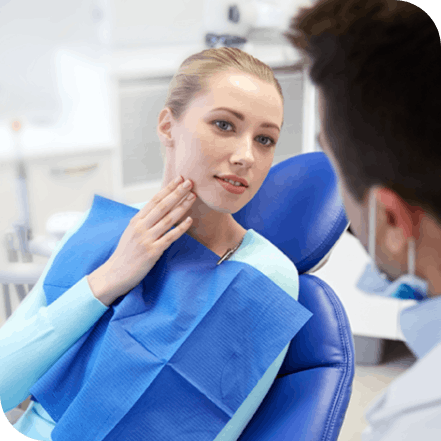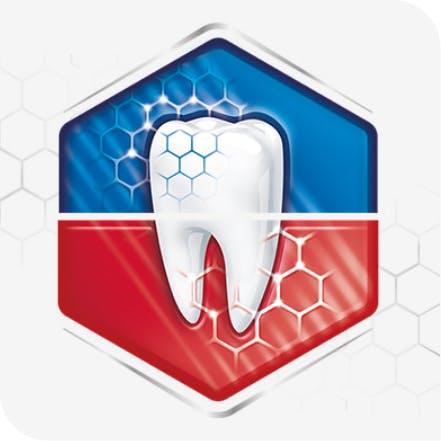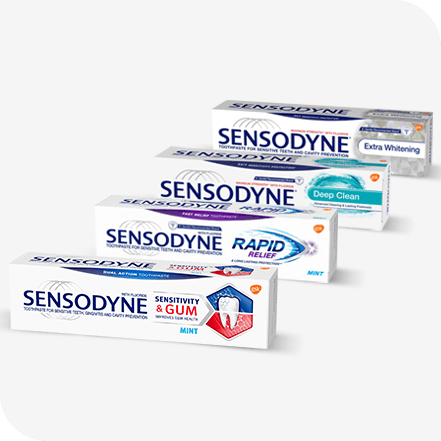How Long Should You Wait to Brush Your Teeth After Eating?

If you’ve just polished off a sugary dessert, your first impulse might be to grab your toothbrush. However, you might be surprised to learn that you should hold off. Learn how long you should wait to brush your teeth after eating, and a few other tips for keeping your mouth healthy.
How Do the Foods You Eat Affect Your Teeth?
Before we get into when you should brush your teeth after eating, you should understand how the foods you eat affect your teeth. You may have heard that too much sugar is bad for your teeth, and while that’s true, you should also be wary of foods high in acid.1
Food and drink that are high in acid can wear away the protective enamel on your teeth in a process known as tooth erosion.1 Tooth erosion is permanent: if your enamel is weakened or worn, away you may experience symptoms like:1
- Pain or sensitivity while eating or drinking
- Tooth discoloration
- Increased risk of cavities
- Compromised tooth fillings
- Abscesses and tooth loss in extreme cases
Just because a food is acidic doesn’t mean you should avoid it altogether. While carbonated soft drinks are a major culprit and should be enjoyed sparingly, nutritious acidic foods like citrus fruits and tomatoes can also have a negative effect on your enamel.1 The key is to eat these healthy acidic foods as part of a meal and to drink acidic fruit juices as an occasional treat, rather than daily.1
Another fact to keep in mind is that while sour candies can be delicious, some varieties can be almost as acidic as battery acid! These should be enjoyed in moderation due to their enamel eroding properties.1
How Long Should You Wait to Brush After Eating?
Now that you know how acidic foods can affect your teeth, you may feel even more compelled to reach for your toothbrush after drinking a glass of lemonade. But the American Dental Association recommends that you wait one hour before brushing your teeth after eating or drinking acidic things.1 This may seem counterproductive, but it gives your saliva a chance to naturally wash away any erosive substances and re-harden the enamel on your teeth.1
Your saliva displays a capacity for buffering in regard to harmful acids in your mouth.2 It also helps to neutralize the effects of acid exposure, minimizing the damage they may cause to your teeth.2 Additionally, saliva is saturated with minerals like calcium, phosphate and fluoride that can help the enamel of your teeth.2 So not only does your saliva help to neutralize and wash away acids after you eat or drink, it also helps to remineralize the enamel of your teeth, which is why it’s important to let your saliva properly do its job for an hour before brushing your teeth after eating.1,2
When it comes to brushing your teeth, twice a day is all that’s needed and shockingly, it is possible to brush your teeth too often.3 Make sure you’re using a soft-bristled toothbrush that fits your mouth well and can easily reach all areas and tooth surfaces.3
Other Dental Habits
While you may feel a sense of urgency in regard to cleaning your teeth, not only can you brush too often, but you can also brush too hard!4 Using too much pressure can irritate your gums and damage your teeth.3 A good rule of thumb when brushing is to think “massage” rather than “scrub.”3
If you’ve developed the habit of chewing ice or using your teeth as a tool to open or cut things, these are two other dental habits that must be stopped.4 Both activities put you at risk for cracking a tooth, and you can also injure your jaw!4
Caring for your teeth can sometimes feel like a chore. Thankfully, choosing the right toothpaste for your sensitive teeth couldn’t be easier. Find the Sensodyne toothpaste that fits your individual needs and add it to your oral health care routine. If you’re concerned about the state of your enamel due to less than perfect dietary choices, try Sensodyne Sensitivity Gum & Enamel toothpaste to restore gum health and re-harden the enamel of your teeth.
Source Citations:


